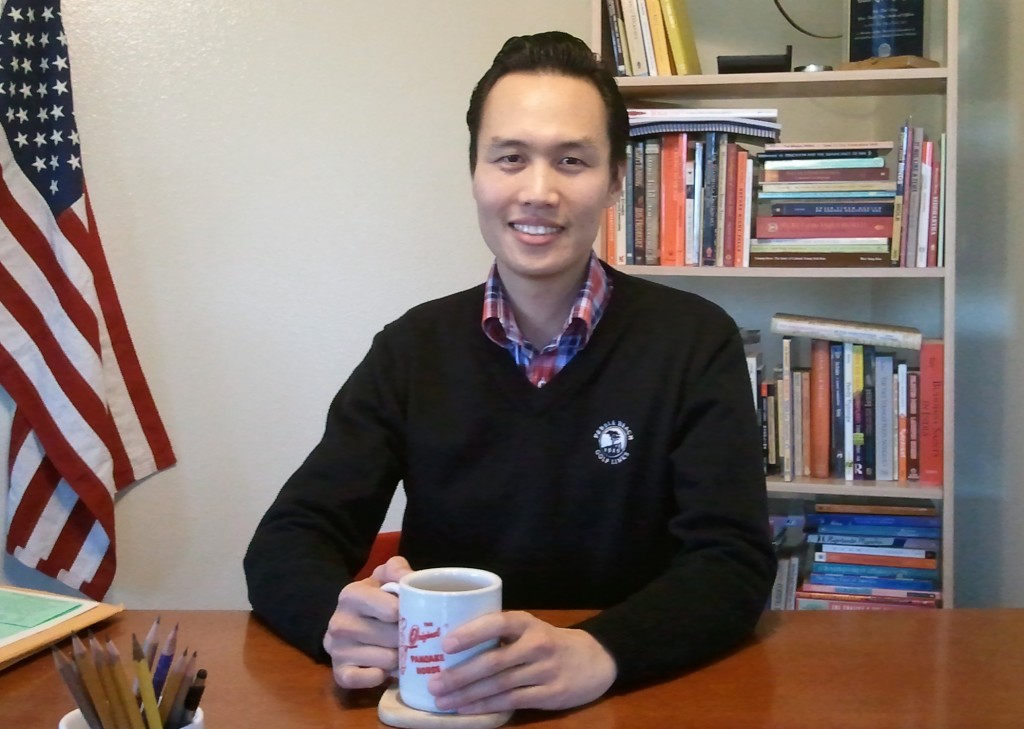Understanding our parents’ stories and trauma
This past February, I didn’t think I would have anyone to interview for the Vietnamese American Oral History Project. I had realized that if I asked my aunt to narrate her life story, I’d spend months past the deadline trying to transcribe the interview because she spoke Vietnamese and I didn’t. But while cleaning out my wallet, I stumbled upon a business card for Bao Nguyen, Vice President of the Garden Grove Unified School District Board of Education, and I realized that he was the same Bao Nguyen that spoke in a 2004 documentary about Little Saigon, Saigon, USA, which I watched in my Vietnamese American Experience class a week earlier. I had met him when he visited the Asian Pacific Student Association (APSA) at UC Irvine during one of our general meetings in January, having been the Advocacy Chair of APSA himself in the early 2000s. I wasn’t sure if he’d have enough time to set aside for an interview, but when I contacted him, he turned out to be very excited to work with me.]
I met him at his home in the early noon on Presidents Day. We sat at his dining room table to conduct the interview, and I noticed that behind him on the wall hung an American flag, next to which stood a shelf lined with books ranging from Toni Morrison novels to readings on religion. We went over some paperwork and then finally started what would turn out to be a two-hour interview.

We related on a lot of different topics. As APSA’s Advocacy Intern, I admired the work he did as APSA’s Advocacy Chair when he went to UCI. He drew from his own experiences as a Vietnamese refugee to fuel the passion for his activism. This was apparent, for example, when he organized with other student to attend a rally in Little Saigon for John McCain, who was running for the Republican presidential nomination in the 2000 elections. They sought to protest his unapologetic use of the racial slur “gook” during his campaign and to educate others on why the word was inappropriate. Bao said in his interview,
As Asian Americans and Vietnamese American young people, we understand the trauma very directly because those people that suffered trauma are very much our parents. So, we weren’t there to say, “John McCain…your experiences being tortured are not legitimate.” We weren’t there to say that…In fact, we experienced that very indirectly through our parents…We were there because as Vietnamese Americans and as young people growing up inAmerica, we’ve been attacked with those racial slurs. We’ve been called gooks. We’ve been called chinks and whatnot.
McCain’s Vietnamese supporters, however, did not receive the protest very well. “No, ‘gook’ means communist!” one of them shouted to Bao and his friends, who were subsequently attacked and pushed off onto the street. It was an emotional experience for Bao, especially considering that those who threatened him and his friends had the “faces of our parents and our grandparents.” The Republican Party, with their strong anti-communist rhetoric, had gained the trust of many Vietnamese refugees shortly after they arrived in the States, so not supporting a Republican candidate, I believe, could be equated with supporting communism. Bao told me that one of the most valuable lessons he learned from the experience was that “we really have to be sensitive towards everyone’s experience, especially if it’s a traumatic experience.”
The story of Bao’s protest at the McCain rally resonated with me deeply. The lesson he learned from the protest made me reflect back on my own parents, their trauma being Vietnamese refugees, my insensitivity toward their experiences when I was a teenage high school rebel, and my sensitivity toward them now, which continues to grow today as I further understand my own history and identity and how they can shape the activism work that I do. As the son of refugee parents, I hope to find such an understanding weaved within the stories of the community and the Vietnamese American Oral History Project, and I hope that any future generations can do the same.
– Brian Dinh
